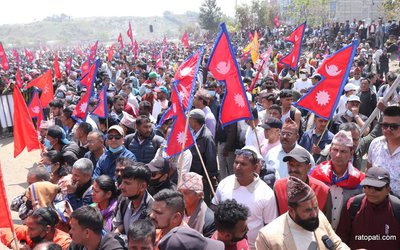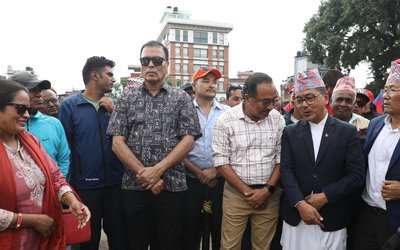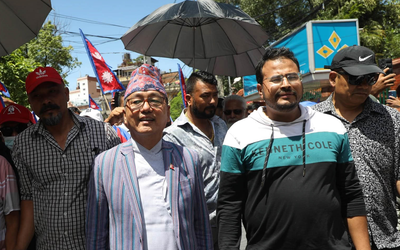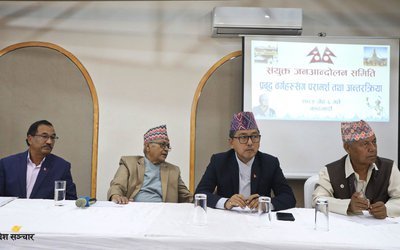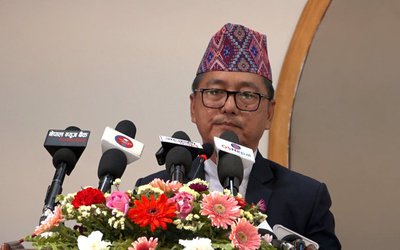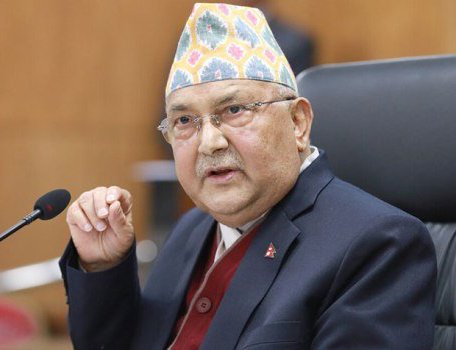
In his written reply to the Supreme Court regarding the dissolution of the House of Representatives, court, Prime Minister KP Sharma Oli mentioned that in a parliamentary system of government the Prime Minister is impliedly vested with the right to dissolve the Lower House.
House of Representatives can be dissolved by the President in the recommendation of the Prime Minister is an implicit character of the parliamentary system of government. The decisions taken by the Prime Minister in a certain political scenario is politically subjected to evaluation by the general public,” read the statement.
The Prime Minister’s written response further goes on to demand quashing the writ petition stating that a political question was involved and the issue did not fall under the standards of justice dispensation.
Article 75 (1) of the Constitution of Nepal has provisioned that the executive power of Nepal is vested in the Council of Ministers as per the law. Similarly, Article 75 (2) mentions that the responsibility of issuing general directives, controlling and regulating the governance of Nepal shall also lie on the Council of Ministers, and Article 75 (3) provisions that all federal executive functions of Nepal should be performed in the name of Government of Nepal. Citing these three provisions of Article 75, Prime Minister Oli said that the HoR dissolved by using the executive rights provided by the Constitution could not be taken otherwise.
“The writ petitioners have apparently mentioned that the Prime Minister does not hold constitutional rights to dissolve the HoR in reference to Article 76 (7) and Article 85 which states that the term of the lower house is for five years and the House can be dissolved only when the appointed Prime Minister fails to obtain the vote of confidence or when the Prime Minister cannot be appointed. But the interpretation of the Constitution must be done in a proper manner,” read the written response.
The Prime Minister further argued that the parliamentary system was neither traditional nor modern as mentioned by the writ petitioner. “This is the form of government which asserts in the constitution-based governance system, which is explicitly mentioned in Article 74 that the form of government shall be multi-party, competitive, federal, democratic, republican, and parliamentary based on pluralism,” he said.”Article 85 states that the tenure of HoR is for five years only when it is not dissolved earlier. This implies that the term of the Lower House is not absolute. When the House is dissolved constitutionally, no question as to rights regarding the dissolution arises.”
The Prime Minister added that the Constitution did not explicitly impose any prohibition on the dissolution of the HoR like it has for registering a vote of no confidence against the PM in Article 100 (4).
“The House was dissolved as per the practices adopted by other nations following the parliamentary system of governance and the previous interpretations done by the Supreme Court,” he said.
Moreover, the Prime Minister asserted that the dissolution of the HoR was a political issue, and thus it could not be subjected to judicial review.
“As dissolving the HoR is a political subject matter, I was compelled to take a fresh mandate of people. Both, formation and dissolution of the House falls under the purview of politics. Owing to the principle established by the Supreme Court that no constitutional interpretation can be done in political matters, the step to dissolve the Lower House does not fall under the subject of judicial review,” he said.
Prime Minister in his written clarification also mentioned that he did not have any other vested interest other than ensuring prosperous Nepal and happy Nepalis. “Thus, as the public mandate is the biggest right of the Nepalis that has been guaranteed by the Constitution, the citizens are the final decision-makers in terms of operation of state and as there were no chances of forming an alternative government, I was compelled to take the decision to dissolve the parliament,” said Prime Minister Oli, clarifying that no wrong intent was associated with the decision of dissolution and the dissolution took place solely as per the doctrine of constitutional and political necessity due to the impact made by the intra-party rift in the Nepal Communist Party in the state operation.
- Global IME Capital’s “Samunnat Yojana 2” Mutual Fund Opens for Public Offering from July 6
- Jul 03, 2025
- Nepal Among Investment-Friendly Countries, Immense Opportunities Exist – Prime Minister
- Jul 03, 2025
- Supreme Court upholds appointment of 52 officials
- Jul 03, 2025
- Weather Forecast: Generally Cloudy In The Hilly Areas With Heavy Rainfall In Some Areas Of Bagmati And Koshi Province
- Jul 03, 2025
- MCA-Nepal Welcomes Continued U.S. Support for MCC Nepal Compact Implementation
- Jul 02, 2025
